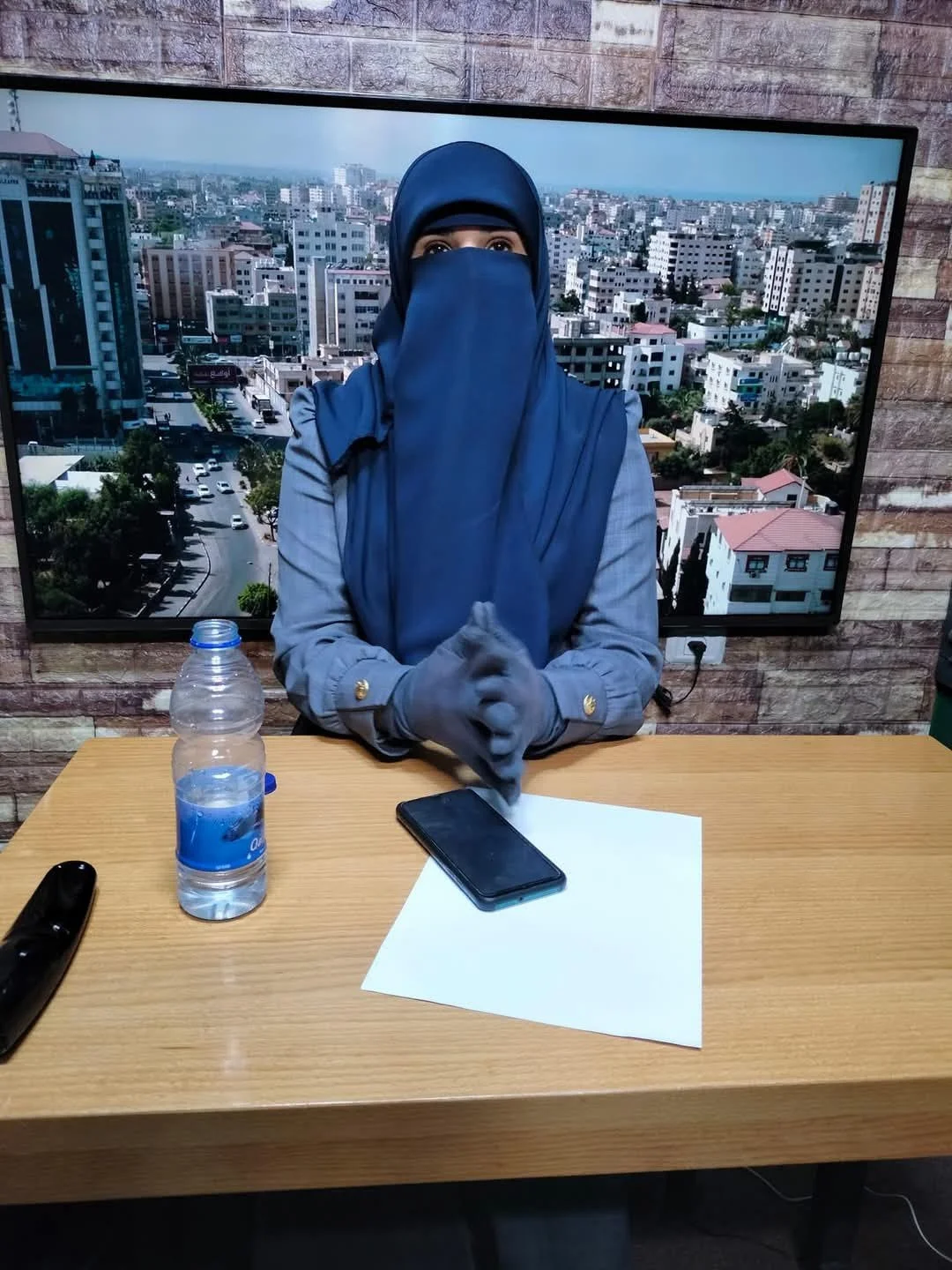Israeli airstrike kills journalist Wafa Aludaini
Writers in Gaza honor their mentor
In the middle of the night, an Israeli airstrike directly targeted the home of Palestinian journalist Wafa Aludaini–killing her, her husband, and two of their children in Deir Al Balah, Central Gaza on Sept. 30. Malek and Siraj, her children that survived the attack, are currently being cared for by their grandfather.
Aludaini was a writer, journalist, international media activist and the director of the 16th October Media Group — she was also my colleague, mentor, and friend.
The government media office in Gaza reported that Aludaini was the 174th journalist to be murdered in Gaza by Israel since Oct 7, 2023.
"There is no such thing as protective attire for journalists in Gaza,” she wrote in her final article for Middle East Monitor. Little did she know that she would be the next target.
I heard a deafening blast that night. I tried to connect to the internet for news updates, but my phone battery was drained, so I turned it off for the night.
The next morning, I opened it with trembling hands. I could barely control my breath. There it was—Wafa’s name in a headline. My heart stopped, but I kept scrolling, hoping it was a mistake. Then, on Facebook, her brother’s post appeared: “My sister Wafa has been killed.” The screen blurred as tears streamed down my face.
I froze in disbelief. I repeatedly checked our last WhatsApp conversation from three days earlier, unwilling to accept that she was gone. The last thing she told me was to text her later, to remind her to respond to me amidst all the messages she received each day.
As I browsed through the 16th October Media Group collection, my eyes welled up as I saw colleagues mourning her passing. I remembered the values she taught me while working with her.
Aludaini and I were more than colleagues, we were friends. When my family and I were displaced to the south, she messaged me, asking where we had moved.
“If you need anything, don’t hesitate. I’m nearby,” she texted me.
When I needed guidance, support, or a word of encouragement she was always nearby. Dearest Wafa, you will never die in the hearts of those who loved you. Although you can't read my article, your memory will remain with me forever.
My colleague was killed because her voice resonated with the world and openedpeople’s eyes to the truth. Yet, even in her absence, the impact of her teachings and the unwavering strength of her spirit will continue to inspire her former students.
"The occupation killed Wafa, but her words and actions will live on in our hearts," Ibrahim Yaghi, a writer, told Palestine in America
"Wafa is a symbol of the strength and courage of Palestinian journalists, and her words will not die as long as we are alive," he added.
Sarah Al-Husari, one of Aludaini's students described her as more than just a journalist and teacher. ,
"She was a mother, a sister, and a symbol of perseverance and inspiration. I wish I could have learned more from her," Al-Husari said.
Aludaini supported dozens of emerging English-speaking journalists and young writers in Gaza, and I was one of them . She mentored us by organizing meetings with editors and experts from abroad to help develop our skills and abilities.
"She was my inspiration, always guiding me," Nour Habib said. "She taught me the importance of being accurate and committed to telling the truth in journalism."
During my time as a writer at the 16th October Media Group, I gained extensive experience in journalism. I benefited from consistent mentorship, connections with foreign editors, and specialized courses in journalistic writing.
I still recall my first published article, which featured a Palestinian boy from the West Bank. Aludaini facilitated an interview with the boy’s mother.
Aludaini’s dedication to her work is evident in her own articles, which provide a comprehensive view of the humanitarian situation in Gaza. Her reports convey the harsh realities of Palestinian suffering to a global audience.
Her death is anything but incidental. Israel's deliberate targeting of Palestinian journalists is part of a bigger plan to maintain control of the narrative. Israel tries to guarantee that the only story heard is the one it wishes to convey by suppressing those who chronicle the occupation’s crimes. Israel’s aggression has destroyed around 70 press organizations, including local radio stations, news agencies, transmission towers, and journalist training institutes.
Forbidden Stories have conducted a collaborative investigation called the Gaza Project, a non-profit effort involving the participation of over 50 journalists, 120 witnesses, and 25 experts in ballistics, weapons, and sound. Their investigation concluded that Israeli occupation forces have deliberately targeted Palestinian journalists, with at least 40 killed inside their homes.
The investigation also found that drones killed or injured at least 18 journalists and destroyed six media offices. In one instance, a drone targeted four Palestinian journalists while covering news in the northern Gaza Strip..
Aludaini was all too aware of the risks her work posed. In one of her posts on X, Wafa similarly wrote, "Imagine! This happens daily. When we sleep, we think that we will never wake up again as the Israeli occupation forces hit homes indiscriminately."
My friend Wafa, I am sorry that I did not write enough. I am sorry I did not share my article with you. I will never forget you, Wafa.




